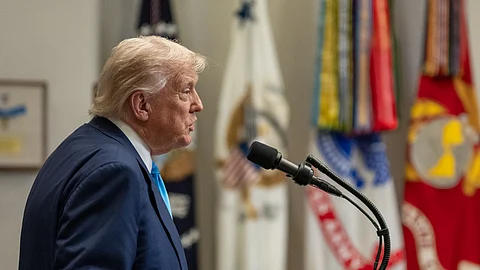

U.S. President Donald Trump announced a 90-day extension of the current trade agreement with Mexico following a phone call with Mexican President Claudia Sheinbaum on Thursday.
The decision maintains existing tariffs while both nations work toward a new trade deal. The extension aims to address trade imbalances and border-related complexities.
Goods from Mexico will continue to face a 25% tariff, with specific sectors like autos also subject to a 25% duty and metals such as steel, aluminum, and copper taxed at 50%.
These tariffs, initially imposed to address issues like fentanyl trafficking, remain unchanged under the extended agreement.
Certain goods compliant with the 2020 U.S.-Mexico-Canada Agreement (USMCA) are exempt from these duties.
Trump noted that Mexico has committed to eliminating non-tariff trade barriers, though specifics were not provided.
The 90-day period provides a window for both countries to negotiate a potential new trade deal. Trump described the call with Sheinbaum as productive, emphasizing growing mutual understanding.
The U.S. recorded a $171.5 billion trade deficit with Mexico last year, highlighting the stakes of the talks. The USMCA, set for renegotiation in 2026, remains a framework for tariff exemptions but has faced criticism from Trump, who earlier imposed tariffs on both Mexico and Canada.
Trump highlighted the unique challenges and opportunities presented by the U.S.-Mexico border, which he described as a key factor in the trade relationship.
The agreement to extend the current deal for 90 days, with the possibility of further extension, reflects a cautious approach to resolving trade disputes.
Both leaders aim to finalize a comprehensive trade agreement within this timeframe, though details of the negotiations remain undisclosed.
This is a developing story and will be updated.